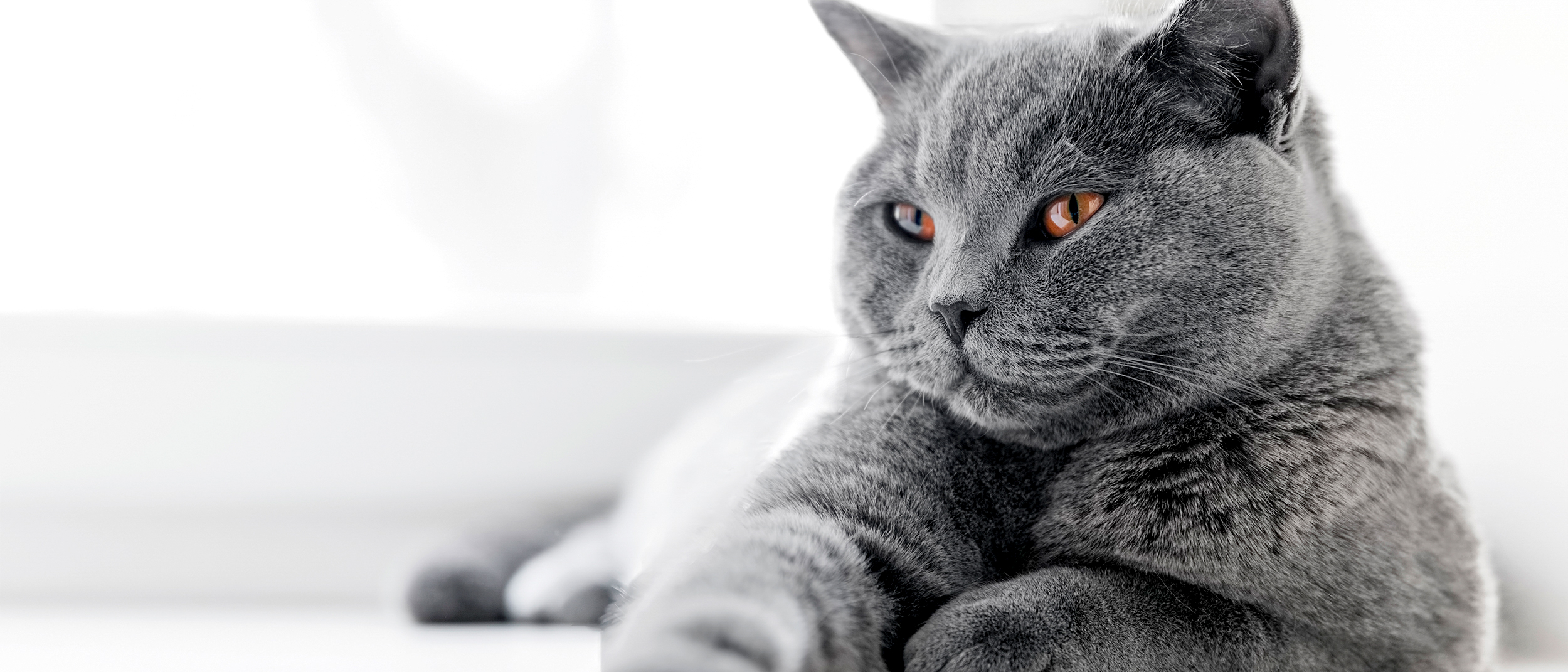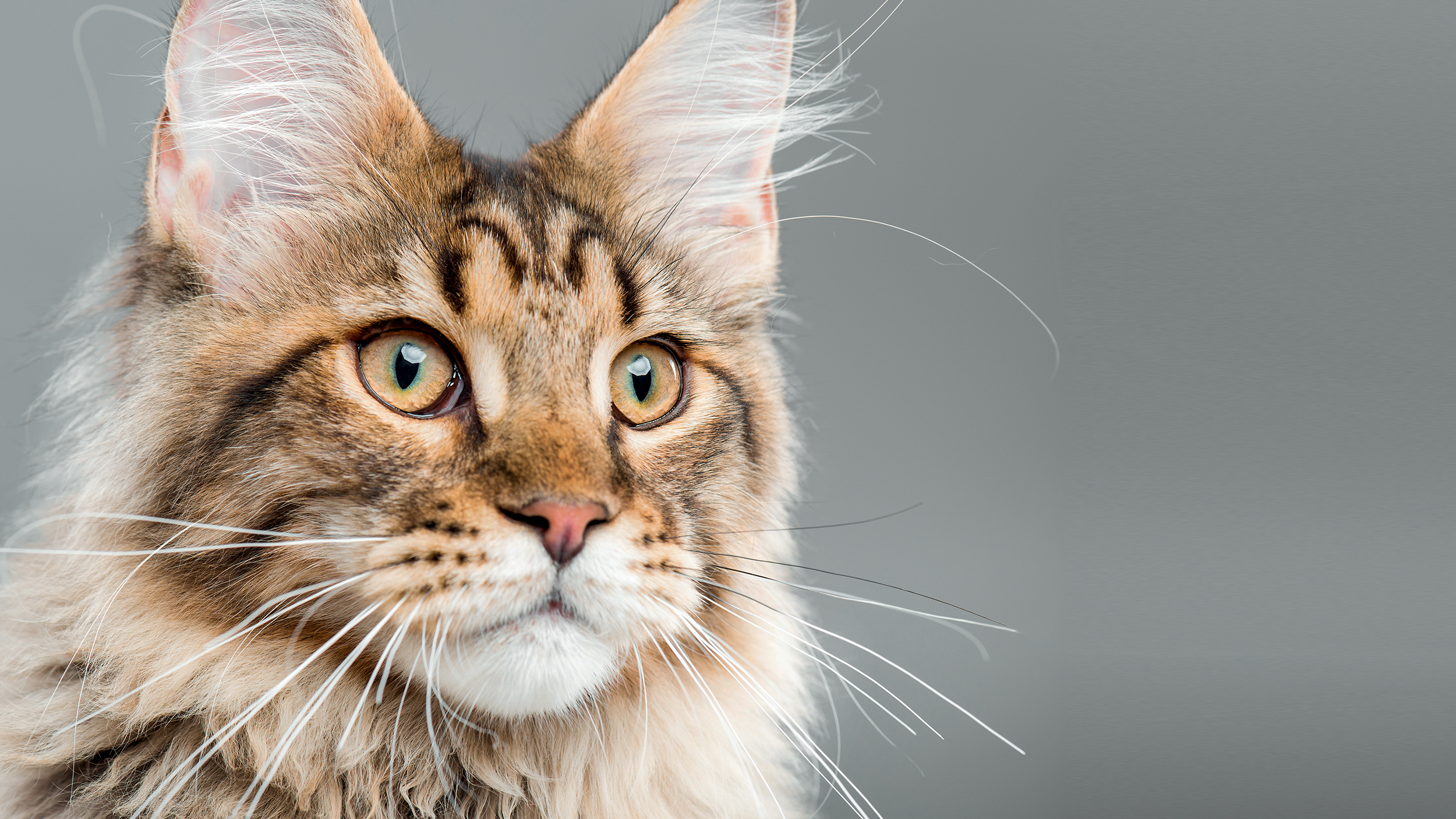What's the best cat breed for me?
Article

Pedigree cat
Pure-breed cats only represent a small part of the feline population. The term "pedigree" generally refers to the record of the cat's parentage and ancestry. A pedigree will be registered as a specific breed by one of the main registration bodies for cat breeds, providing a guarantee of conformity to breed characteristics and the cat's lineage.
Should you get a pure-breed cat or not?
There is no right or wrong answer, because it comes down to personal preference. Some people prefer to get a cat from a shelter.
Purebred cats can sometimes be found in shelters and as many breed clubs also run a rescue service for cats of their breed that have become homeless.
Occasionally, breeders will also look for homes for their retired cats, although many breeders prefer keeping their retired breeding cats once they have been neutered.
The choice of a pedigree or non-pedigree will influence the likely source of the cat. While most pure-breed pets are acquired from a breeder, the sources of non-pedigree cats are more varied. The most common sources are an accidental litter from a friend or neighbor, or shelters.
Why choose a pure-breed cat?
A breed is created by selective crossing to establish distinct physical characteristics: long hair, shape of the head and ears, or the tail, for example. This selection also influences temperament and behavior. This is why the character traits of an individual breed are generally well-defined. It is much harder to guess the temperament of an adopted or rescued kitten, and fans of mixed-breed cats will tell you this is part of their charm. Most lovers of pure-breed cats are attracted not only by the animal's beauty but also by their character.
For example, the Ragdoll is well known to be a relaxed, quiet cat that calmly adapts to new homes, while Norwegian Forest cats have a sociable character, making them excellent pets for children, and Oriental cats are known to be more demanding of their owners' time, and form very strong bonds with their human companions. Knowing the characteristics and requirements of each purebred will help you to choose the cat which best matches your expectation.
Today, the Ragdoll, Maine Coon, and Bengal seem to be particularly popular. Recent years have seen an explosion of new breeds with very specific physical characteristics, such as the hairless Sphynx, the soft, curly coated Rex, and the tailless Manx.
You will want to choose a breed whose looks appeal to you, but more important is that the temperament and behavior of the breed is likely to be appropriate for you. To find out more about the unique characteristics and needs of cat breeds, visit our breed finder, or attend a cat show and speak with breeders.

Why choose a mixed breed cat?
When a breed is established, only the individual cats which express the required physical characteristics and temperament are kept for reproduction. If only a few individuals present this characteristic, the gene pool can be drastically reduced.
As there are very few qualifying individuals, a degree of inbreeding is unfortunately necessary to secure the desired characteristics. This process can increase the risks of creating genetic problems. However, genetic tests are becoming more widely available to screen for possible breed related genetic disorders to enable breeders to avoid these. Most feline organizations encourage responsible breeding, following good practice in terms of selection and limiting intensive inbreeding.
Some breeders are heightening some morphological specificities to an extreme, which is known as "hypertype" . Examples are the Siamese and Oriental breeds with a more and more elongated head, and in contrast, the Persian and Exotic breeds with their increasingly flattened faces. These exaggerations of conformation are not without anatomical and physiological consequences, and can be the source of health problems.
In non-pedigree and mixed-breed cats, the genetic pool is much larger and the chances of developing these hereditary conditions may be significantly lower.
Does gender make a difference in my purebred or mixed-breed choice?
The key question is whether there are notable differences in behavior and character between male and female cats.
The gender difference is less marked in purebred cats, where temperament is part of the breed specification, enabling you to choose a breed in terms of the character best adapted to your preferences and lifestyle.
With non-pedigree cats, whose character is less predictable, it is sometimes suggested that males are cooler, more tolerant and will wander further, while a female will prefer to stay closer to home. On the other hand, it is also said that females can be more dominant in the house, making cohabitation with other animals difficult sometimes.
That being said, many of the behavioral differences that appear at puberty, for example urine marking in males, or females going into heat, usually cease with neutering.
Whether choosing a mixed-breed or pure-breed cat, it's important to remember that all cats are individuals and their personalities or living requirements may be different. Speak to the breeder or adoption center, who will know the personalities of each cat and be able to help you identify which one is best suited to your life and fits any requirements you may have. Related Articles Adult cat standing next to a kitten licking its ear. Should I adopt a cat or buy a kitten? A number of things are likely to influence your decision to get a kitten or adult cat. Both experiences can be rewarding, doing some research will help to ensure your pet becomes a happy and well-adjusted member of the household.
Related Articles
Like & share this page